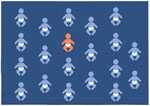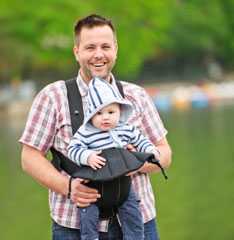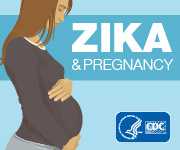Birth Defects Tracking in Colorado
Colorado Responds to Children with Special Needs

1 in 20 babies born in Colorado has a major birth defect.
Colorado Responds to Children with Special Needs (CRCSN) is essential for understanding the impact of birth defects in the state. The program tracks babies born with birth defects, collects data to learn about how to prevent these conditions, and helps direct families to special services that can help babies with birth defects.
Common. Costly. Critical.
- About 3,250 (5%) of all births in Colorado each year have a major birth defect.
- Birth defects are costly – hospital costs for the treatment of birth defects are more than $2.5 billion each year in the United States.
- Babies born with a birth defect are more likely to die before their first birthday, compared to babies born without a birth defect.

About the Program
Founded in 1989, CRCSN is the birth defects tracking and prevention program at the Colorado Department of Public Health and Environment. The program collects information about birth defects and disabilities among all births in Colorado. One of 14 birth defects programs that receive a grant funded by CDC’s National Center on Birth Defects and Developmental Disabilities, CRCSN monitors about 65,000 babies born in Colorado each year. CRCSN partners with local agencies to connect families to services in their communities. The local agencies include public health departments, community nursing services, early intervention programs, and Family Voices Colorado.
CRCSN works to:
- Track birth defects and developmental disabilities in babies diagnosed before birth through three years of age
- Connect children and families with services and resources in their communities
- Collect data to monitor trends in the number of children born with birth defects or developmental disabilities
- Understand how to prevent some birth defects or developmental disabilities
Program in Action
- Tracks birth defects: CRCSN works to describe the patterns of birth defects and factors that increase the risk for developmental delay. The program strives to provide accurate information for prevention and research. It is the most comprehensive source of information on the occurrence of birth defects for the entire state of Colorado.
- Refers to services: The Community Notification and Referral Program is an integral component of CRCSN. This collaboration between the CRCSN and local agencies has connected many children and families in Colorado with services and resources in their own communities.
- Prevents birth defect recurrence: Taking folic acid can help prevent major birth defects of the brain and spine, also called neural tube defects. CRCSN uses their data to identify families who previously had a pregnancy affected by one of these birth defects in order to promote folic acid use in future pregnancies. Women who have received these services have reported finding the information useful.
Making a Difference
Researchers at the University of Colorado collaborated with CRCSN, using the data to learn more about babies with birth defects:
“We approached CRCSN to collaborate on providing us access to their carefully collected, meticulously documented, and systematically archived data [on birth defects]. Our collaborative efforts have resulted in 2 articles… [which] have resulted in providing sorely needed data to help children in these vulnerable populations… [with this work], the birth defects program has directly and indirectly improved the health of infants and children with Down syndrome and other chromosomal abnormalities in the US and globally.“
— Eric A F Simoes, MB, BS, DCH, MD, Professor of Pediatrics at the University of Colorado School of Medicine and Professor of Epidemiology at the Colorado School of Public Health
More Information
For more information on the Colorado Responds to Children with Special Needs program, please visit their website or call (303) 629-2700.
- Page last reviewed: May 16, 2016
- Page last updated: September 21, 2016
- Content source:



 ShareCompartir
ShareCompartir